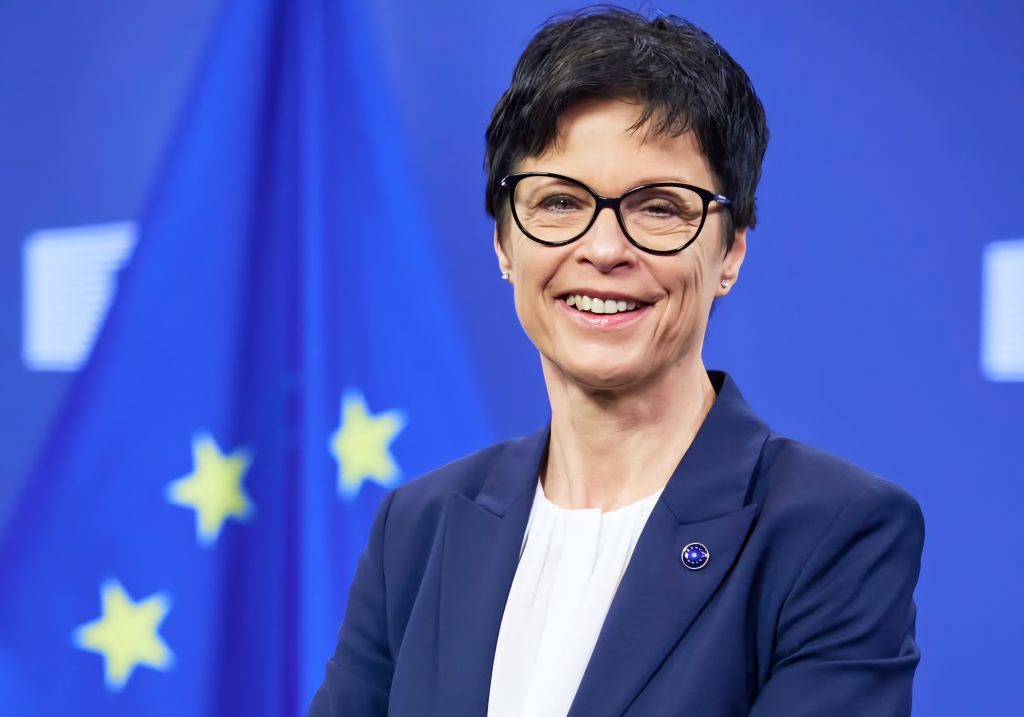Albania, Montenegro, North Macedonia and Serbia have made progress on judicial reforms but face persistent political pressure on their courts and widespread corruption, the European Commission said in its annual Rule of Law Report published on Tuesday.
“Promoting the rule of law is at the heart of the #EUEnlargement process,” EU Enlargement Commissioner Marta Kos posted on X. “Applying the same criteria to 🇦🇱🇲🇪🇲🇰🇷🇸 as to 🇪🇺 Member States sends a clear signal: We’re ready to support your reform efforts towards strong democracies. Today’s report helps steer the path ahead.”

Presenting its sixth Rule of Law Report, the Commission assessed all EU member states and, for the second year in a row, four Western Balkan candidates seen as closest to joining the bloc.
“The rule of law is not only the backbone of democracy – it is also a cornerstone of Europe’s competitiveness,” said Henna Virkkunen, Executive Vice President for Tech Sovereignty, Security and Democracy, in Strasbourg. Commissioner Michael McGrath, responsible for Democracy, Justice and Rule of Law, co-presented the findings.
Political pressure undermining courts
In Albania, the report found that reforms have strengthened judicial independence and prosecutorial autonomy but warned of ongoing political interference and delays in appointing members to key judicial bodies.
Montenegro is implementing its 2024–2027 Judicial Reform Strategy but has yet to complete planned activities for 2024. The report noted some early progress but said more work was needed to improve the composition of its Judicial and Prosecutorial Councils.
North Macedonia’s courts continue to face interference from other branches of government, the report said, adding that limited funding threatens their independence.
Serbia still struggles with high political pressure on its judiciary and prosecution services, the Commission said, with limited follow-up by relevant institutions and a need for greater transparency in the High Judicial Council.
Corruption persists
Corruption remains widespread across the four countries, despite some improvements in legislation and enforcement. Albania has stepped up efforts but needs to finalise its legal framework. Montenegro’s record on investigating and prosecuting high-level corruption is improving but few convictions mean many crimes go unpunished.
In North Macedonia, petty corruption persists in sectors like healthcare, undermining public trust. In Serbia, the report highlighted a lack of convictions and asset seizures in high-level cases, citing investigations launched after the collapse of the Novi Sad railway station canopy in November 2024 that have yet to conclude.
Media freedom under strain
Media independence and journalist safety remain major concerns, especially in Serbia. The report said the country’s broadcast regulator lacks independence, while delays in appointing a new council undermine public trust. Editorial autonomy and transparency in media ownership remain limited.
In Albania, high ownership concentration and attacks on journalists continue. Montenegro has improved ownership transparency but many online outlets still hide their backers. North Macedonia’s regulator has more financial independence, but new board appointments are still pending and journalists say working conditions have not improved.
Checks and balances weakened
High political polarisation continues to hinder parliamentary work across the region, the Commission found.
In Albania, clashes between the ruling majority and opposition disrupted parliament. Civil society organisations operate freely but face funding and registration challenges, with press freedom concerns narrowing civic space.
Montenegro’s political crisis over a disputed Constitutional Court retirement has eased after a March agreement, but civil society still operates in a limited space with little structured dialogue with government.
North Macedonia’s parliament is working under new rules to boost efficiency but struggles with appointments to independent bodies, raising questions about merit. The government has taken steps to improve cooperation with civil society.
Serbia’s parliament met just nine times since February 2024. Civil society faces growing pressure, particularly groups monitoring elections, environmental damage or protests against lithium mining and the glorification of war criminals.



